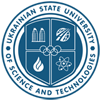Competences of Librarians in Performing Different Roles in Citizen Science Projects
DOI:
https://doi.org/10.15802/unilib/2024_316954Keywords:
citizen science, library role, librarians’ competences, competence developmentAbstract
Objective. The objective of this article is to explore the skills of librarians in academic and public libraries as they engage in diverse roles within citizen science. Methods. The method of this research was focus group discussions to determine the competences required by public and academic librarians for citizen science and the best ways to cultivate these skills. Results. The results of the group discussion revealed that libraries are primarily seen as facilitators of citizen science, focusing on organising communication and information sharing, delivering training and coordinating other related activities. Librarians require a range of skills, including organisational, communication, educational, public speaking / knowledge transfer, information and digital literacy, and analytical abilities along with more specific research skills. When initiating projects, librarians also need expertise in the relevant scientific field, project writing, team management, and financial literacy. Differences between academic and public librarians were noted, based on the specific activities they engage in and the communities they serve. Conclusions. Librarians are well positioned to serve as facilitators of citizen science by fostering community engagement, nurturing relationships and providing essential resources that support research and foster public participation. However, many librarians currently lack sufficient knowledge, understanding and motivation to engage in citizen science activities. Although librarians already possess many of the core competences needed for citizen science activities, these skills must be tailored specifically to citizen science contexts, continuously updated and supplemented with specialised competences that are not typically found in library settings. Librarians can acquire these skills by actively participating in citizen science projects and learning from experienced colleagues, as well as through training programmes or self-directed online learning.
References
Bogert, J. M., De Vries, S., Kunst, S., Nastase, N., Kloosterman, W., Knols, K.,…Werkman, F. (2022). Implementing citizen science within open science: Identifying extra-academic skills, collaborations, rewards and recognitions in the context of a university. The Evolving Scholar, 2(Version 1). doi: https://doi.org/10.24404/62bad143c79c8753371e2366 (in English)
Borbély, M. (2022). Public library digital competency mapping 2019: a survey on digital skills of library professionals with different qualifications. Frontiers in Education, 7, 1-8. doi: https://doi.org/10.3389/feduc.2022.909502 (in English)
Cigarini, A., Bonhoure, I., Vicens, J., & Perelló, J. (2022). Citizen science at public libraries: Data on librarians and users perceptions of participating in a citizen science project in Catalunya, Spain. Data in Brief, 40, 107713. doi: https://doi.org/10.1016/j.dib.2021.107713 (in English)
Cohen, C. M., Cheney, L., Khue Duong, Lea, B., & Unno, Z. P. (2015). Identifying opportunities in citizen science for academic libraries. Issues in Science and Technology Librarianship, 79. doi: https://doi.org/10.29173/istl1629 (in English)
Ignat, T., Cavalier, D., & Nickerson, C. (2019). Citizen science and libraries: Waltzing towards a collaboration. Mitteilungen der Vereinigung Österreichischer Bibliothekarinnen und Bibliothekare, 72(2), 328-336. doi: https://doi.org/10.31263/voebm.v72i2.3047 (in English)
Lorke, J., Golumbic, Y. N., Ramjan, C., & Atias, O. (2019). Training needs and recommendations for Citizen Science participants, facilitators and designers. (pp. 1-28). COST Action 15212. Retriеved from http://surl.li/vwpwxf (in English)
Nyumba, T. O., Wilson, K., Derrick, C. J., & Mukherjee, N. (2018). The use of focus group discussion methodology: Insights from two decades of application in conservation. Methods in Ecology and Evolution, 9(1), 20-32. doi: https://doi.org/10.1111/2041-210X.12860 (in English)
Roche, J., Bell, L., Galvão, C., Golumbic, Y. N., Kloetzer, L., Knoben, N.,…Winter, S. (2020). Citizen Science, Education, and Learning: Challenges and Opportunities. Frontiers in Sociology, 5, 1-10. doi: https://doi.org/10.3389/fsoc.2020.613814 (in English)
Rammutloa, M. W. (2023). The missing link: the capacity development for academic librarians to sustain citizen science at university libraries. Library Management, 44(6/7), 437-447. doi: https://doi.org/10.1108/LM-03-2023-0014 (in English)








